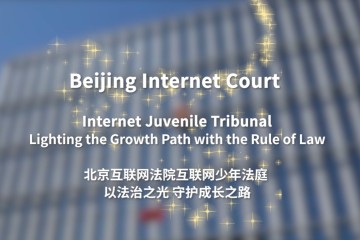Beijing Internet Court introduces automated case filing with blockchain tech
The Beijing Internet Court has filed a case automatically through a blockchain-based smart contract technology, the first one of its kind in China.
In an online infringement dispute case handled by the court, the plaintiff and the defendant reached a mediation agreement and were told the case would be executed automatically through the blockchain smart contract technology.
With only a click, the enforcement case was automatically filed to the Beijing Internet Court when the defendant failed to fully perform the obligations in the mediation agreement, a smart contract.
This is the first automatic case filing powered by the blockchain smart contract technology in China. It means the judicial blockchain smart contract has been put into practical use, and the blockchain data has been highly integrated with the judicial off-chain information system.
Since 2018, the Beijing Internet Court has built the Balance Blockchain electronic evidence platform, striving to solve the problems of electronic evidence deposit and online inspection of upper chain evidence.
The Balance Blockchain, the first step taken by the court to apply blockchain technology to trials, deeply integrates the technology with judicial business for higher quality and efficiency.
To date, the Balance Blockchain has accessed 18 blockchain nodes and data from 25 application platforms in nine fields. It has collected more than nine million data items and over 100 million pieces of evidence.
The smart contract is a modular, auto-executing script that runs on blockchain, working for data processing, value transfer, and asset management.
With the precision and unique specificity of computer language code, the application of smart contracts in the integration of trials with blockchain can avoid misunderstandings caused by language loopholes. In addition, it reduces manual intervention and promotes a smarter and more open and transparent process of judicial enforcement.

 Judicial White Paper
Judicial White Paper
 Play
Play Play
Play Online Lawsuit Guide
Online Lawsuit Guide Beijing Internet Court Lawsuit Service WeChat Account
Beijing Internet Court Lawsuit Service WeChat Account  Beijing Internet Court WeChat Account
Beijing Internet Court WeChat Account